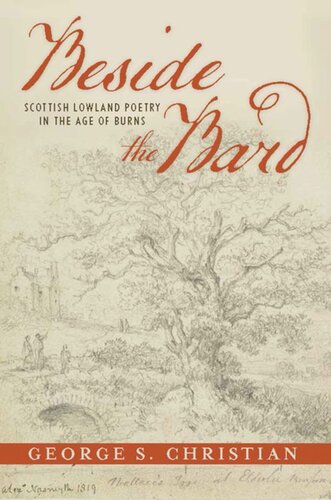

Most ebook files are in PDF format, so you can easily read them using various software such as Foxit Reader or directly on the Google Chrome browser.
Some ebook files are released by publishers in other formats such as .awz, .mobi, .epub, .fb2, etc. You may need to install specific software to read these formats on mobile/PC, such as Calibre.
Please read the tutorial at this link: https://ebookbell.com/faq
We offer FREE conversion to the popular formats you request; however, this may take some time. Therefore, right after payment, please email us, and we will try to provide the service as quickly as possible.
For some exceptional file formats or broken links (if any), please refrain from opening any disputes. Instead, email us first, and we will try to assist within a maximum of 6 hours.
EbookBell Team

4.4
52 reviewsBeside the Bard argues that Scottish poetry in the age of Burns reclaims not a single past, dominated and overwritten by the unitary national language of an elite ruling class, but a past that conceptualizes the Scottish nation in terms of local self-identification, linguistic multiplicity, cultural and religious difference, and transnational political and cultural affiliations. This fluid conception of the nation may accommodate a post-Union British self-identification, but it also recognizes the instrumental and historically contingent nature of “Britishness.” Whether male or female, loyalist or radical, literati or autodidacts, poets such as Alexander Wilson, Carolina Olyphant, Robert Tannahill, and John Lapraik, among others, adamantly refuse to imagine a single nation, British or otherwise, instead preferring an open, polyvocal field, on which they can stage new national and personal formations and fight new revolutions. In this sense, “Scotland” is a revolutionary category, always subject to creative destruction and reformation.
Published by Bucknell University Press. Distributed worldwide by Rutgers University Press.